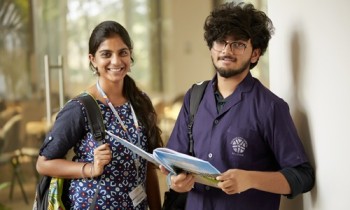Anatomy & Physiology Lab
The Anatomy & Physiology Lab at the Biomedical Department is a state-of-the-art facility designed to provide students with hands-on experience and practical understanding of the human body's structure and functions. Here, students have the opportunity to apply theoretical knowledge gained in lectures and textbooks to real-life scenarios, reinforcing their understanding of the subject matter. The lab provides a range of resources for the study of human anatomy, including anatomical models that accurately represent various organ systems and body structures. These models allow students to examine and understand the complex organization and relationships within the human body, facilitating the learning of anatomical terminology, spatial relationships, and functional concepts.
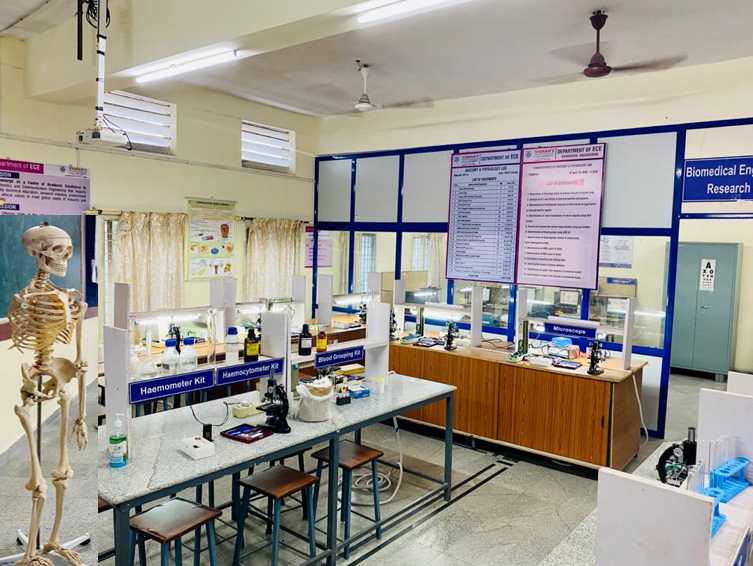
Bio-Medical Instrumentation Lab
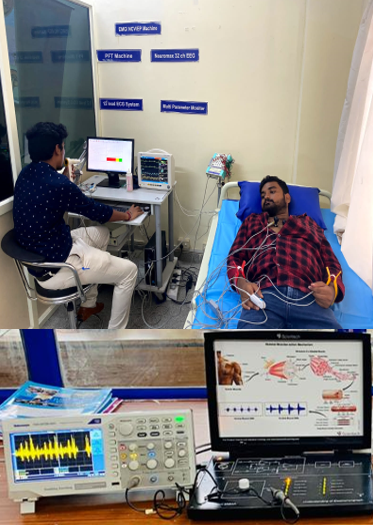
Welcome to the Biomedical Instrumentation Lab at the Biomedical Department! Our lab is a cutting-edge facility dedicated to the exploration, development, and application of advanced biomedical instruments and devices. In the ever-evolving field of biomedical engineering, the design and development of precise and reliable instruments play a crucial role in healthcare and medical research. Our lab serves as a hub for innovation, where students have the opportunity to work with state-of-the-art equipment and technologies to create novel solutions that address the complex challenges in healthcare diagnostics, monitoring, and treatment. Furthermore, the Biomedical Instrumentation Lab offers research opportunities, allowing students to delve into advanced projects that contribute to the field's advancements. They have the chance to explore emerging technologies such as wearable sensors, biomedical imaging systems, bioelectrical interfaces, and telemedicine applications.
Diagnostic and Therapeutic Laboratory
The Diagnostics & Therapeutics Lab is a state-of-the-art facility dedicated to advancing the field of diagnostics and therapeutic interventions in healthcare. In this cutting-edge lab, students have the opportunity to explore and gain hands-on experience in a wide range of diagnostic techniques and therapeutic interventions. Our lab is equipped with the latest equipment, instruments, and technologies that enable students to learn, practice, and refine their skills in various diagnostic and therapeutic procedures. The Diagnostics & Therapeutics Lab focuses on training students in performing accurate and efficient diagnostic tests. Students learn the principles and techniques of laboratory diagnostics, including sample collection, preparation, analysis, and interpretation of results. They work with advanced equipment such as Surgical Diathermy, Ultrasonic Diathermy, Long wave & Short Wave Diathermy, Automated Drug Delivery System, Ultrasound Therapy, Thermography allowing them to understand the intricacies of different diagnostic methodologies.
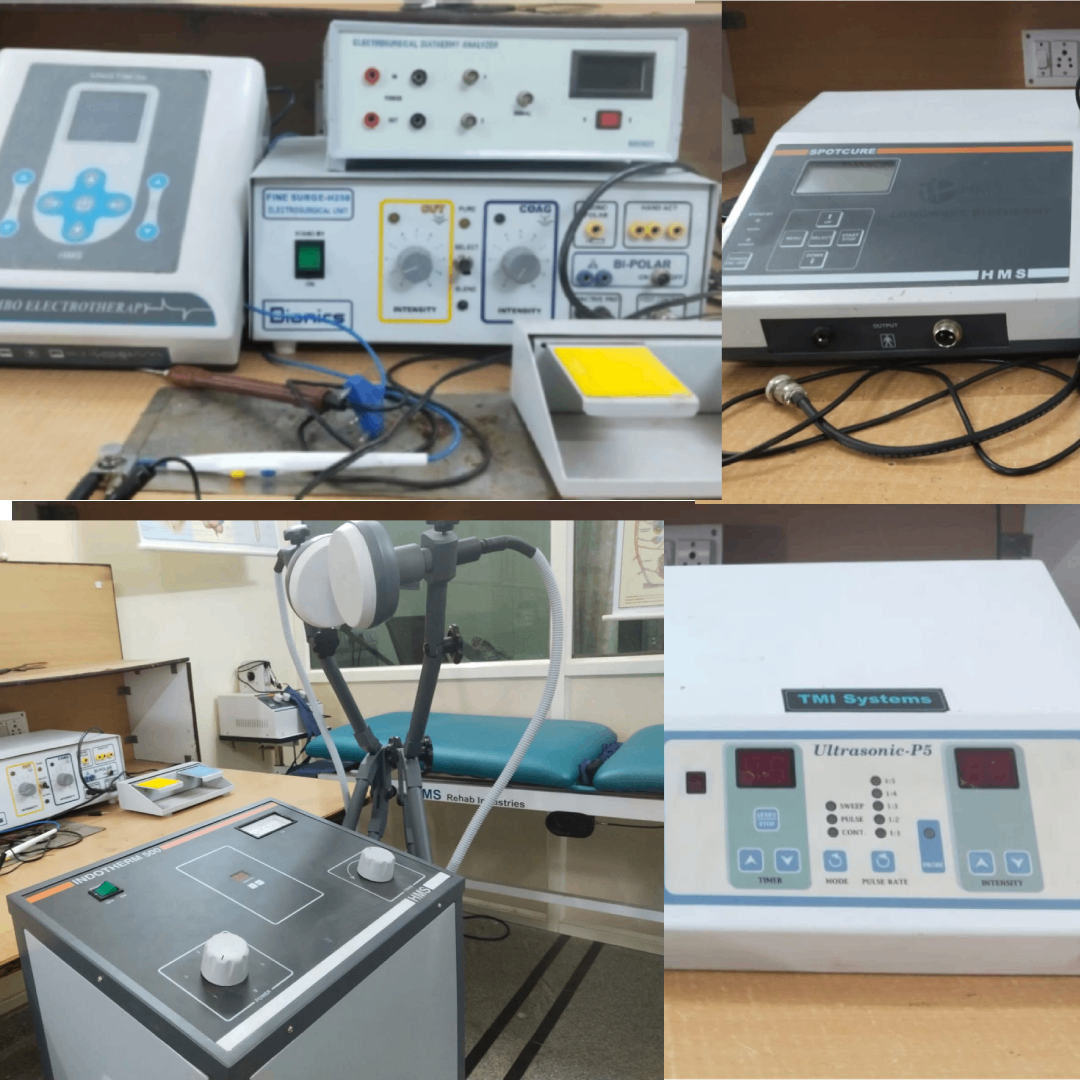
Biomaterial & Biomechanics Laboratory
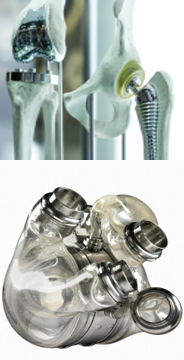
The microprocessor and Interfacing laboratory is equipped with sophisticated state-of-art tools for teaching and experimentation in the area of microprocessors. This laboratory will provide the students a perfect introduction to the world of Microprocessors and to provide hands-on experience essential to the real understanding of microprocessors architecture and it's interfacing to the peripheral devices. The experiments are designed to provide the students with the design principles of microprocessor systems and real time programming. Also students use the facilities in this laboratory for the realization of their miniprojects and course project work. The course accomplishes this by using microprocessor and microcontroller kits, simulators and software development systems.
Biomedical Computation Laboratory
The Biomedical Computation Laboratory is equipped with high-performance computing resources, advanced software tools, and data visualization technologies to support a wide range of computational research activities. We focus on three main areas: bioinformatics, computational modeling, and data analysis. Data analysis is a fundamental aspect of biomedical research, and our lab provides students with the tools and expertise to handle and analyze large and complex datasets. Students learn statistical methods, machine learning algorithms, and data mining techniques to extract meaningful information from biomedical datasets. They work with diverse data types, including genomic data, clinical records, medical images, and sensor data, to identify patterns, correlations, and predictive models that can support clinical decision-making, biomarker discovery, and disease diagnosis.
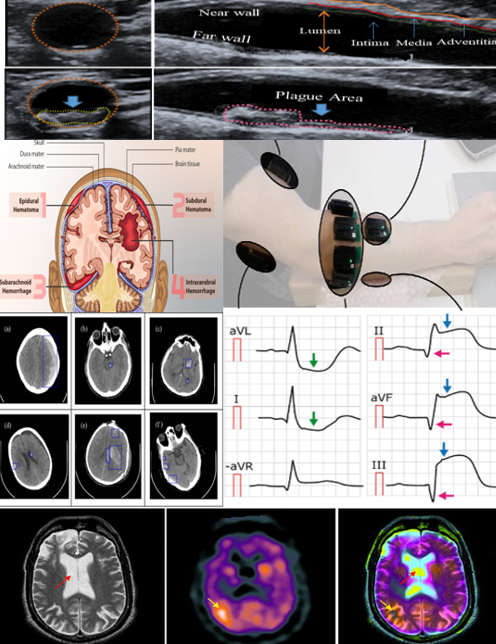
Biosensors and Transducers Laboratory
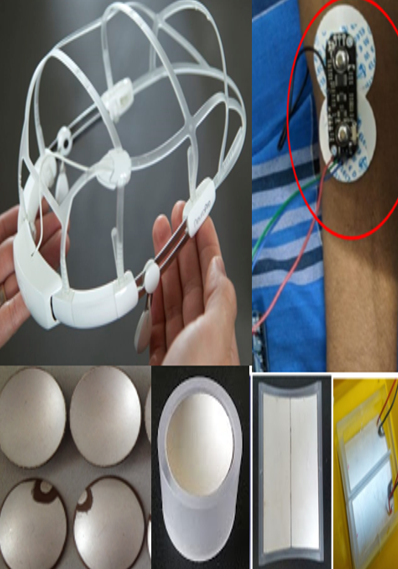
Biosensors and transducers play a vital role in the field of biomedical engineering by enabling the detection, measurement, and analysis of biological and biochemical signals. They are essential components in various applications, including medical diagnostics, environmental monitoring, food safety, and biotechnology research. Biosensors and transducers have revolutionized various fields by providing sensitive, selective, and real-time monitoring capabilities. They have enabled point-of-care testing, remote sensing, and continuous monitoring, leading to advancements in personalized medicine, environmental protection, and biotechnological applications. Ongoing research focuses on improving the sensitivity, specificity, and miniaturization of biosensors and transducers, as well as the development of novel materials and technologies for enhanced performance.
Embedded systems Laboratory
Study of the basic architecture of a microcontroller including its applications in a microcontroller system.Implementation of the principles of microprocessing, interfacing and total system design by implementing projects. Application of top-down design to microcontroller software development in assembly language and C. Introduction into the evaluation of hardware and software trade-offs. This lab will enable students to apply the theoretical principles of embedded system course. It will give hands-on experience with microcontroller applications and interfacing with basic solid state input/output devices, D/A and A/D converters and LED & LCD displays.
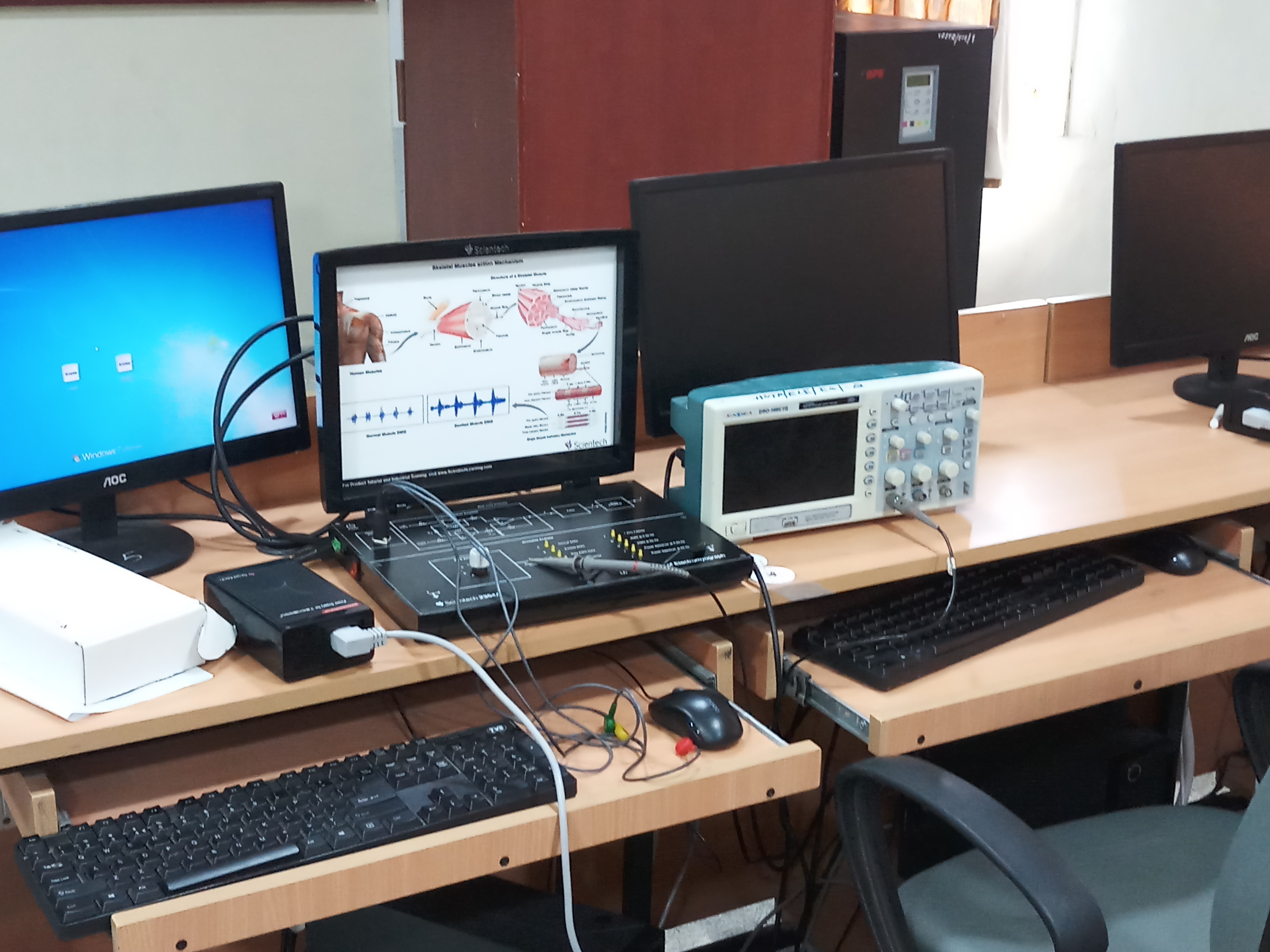
Central Instrumentation Lab
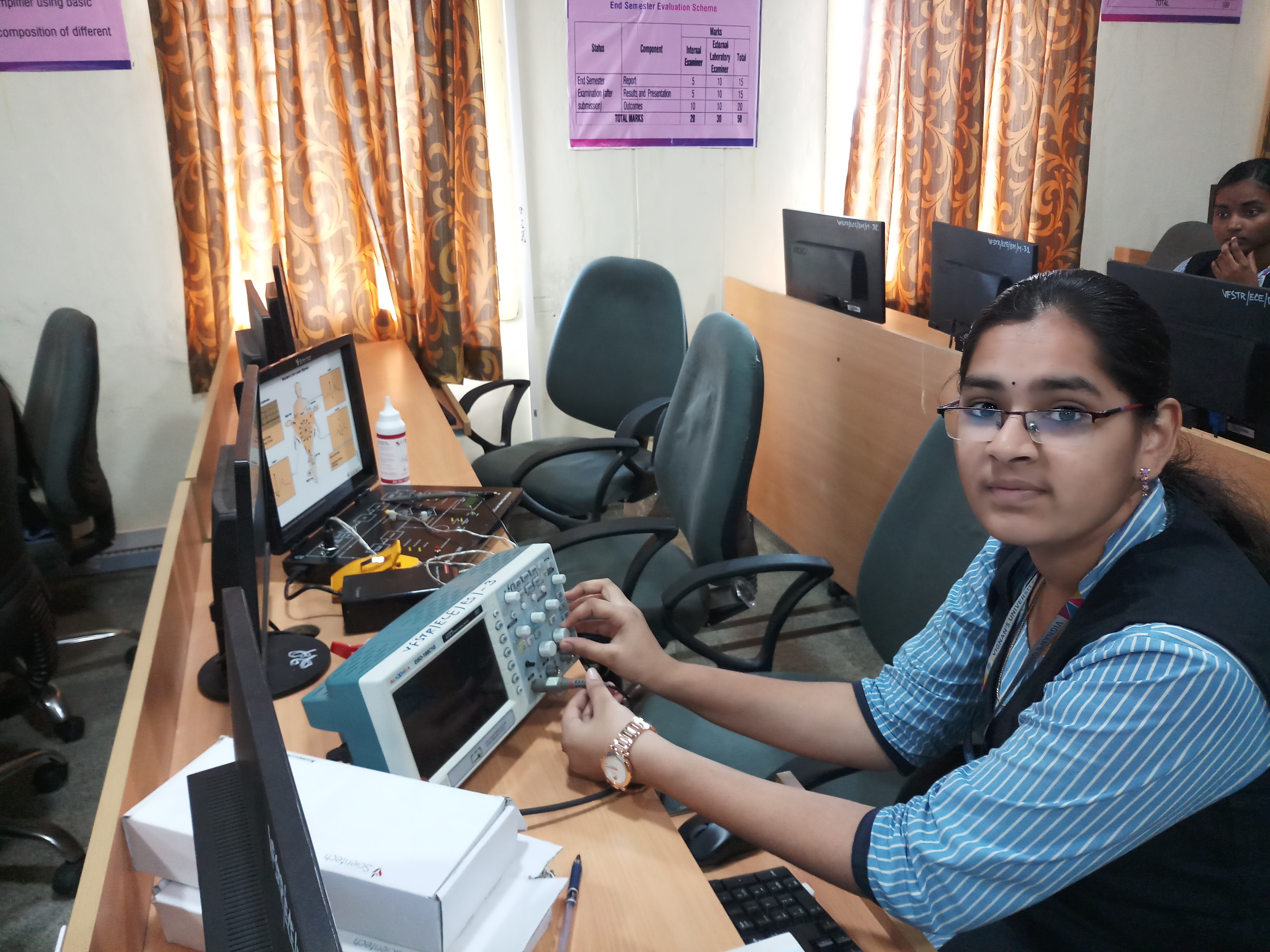
Instrumentation Laboratory provides the basic principles and operation of different sensors and transducers with their working as the Instruments eased our lives these days without which operation of typical equipments will not be feasible in some Industries and even in home appliances as well. In this laboratory major types of conversion of energy from Physical form such as Distance, Displacement, Temperature, Pressure, Speed etc to Electrical form will be explained with the help of respective transducers with necessary equipment such as Digital Meters and Oscilloscopes. Data acquisition through the use of Computer is also equipped with necessary software with interfacing to monitor.







